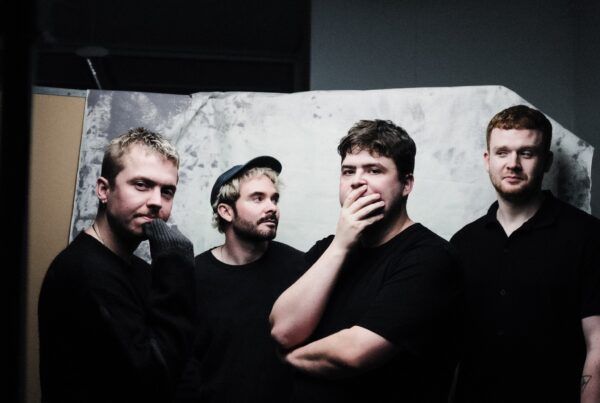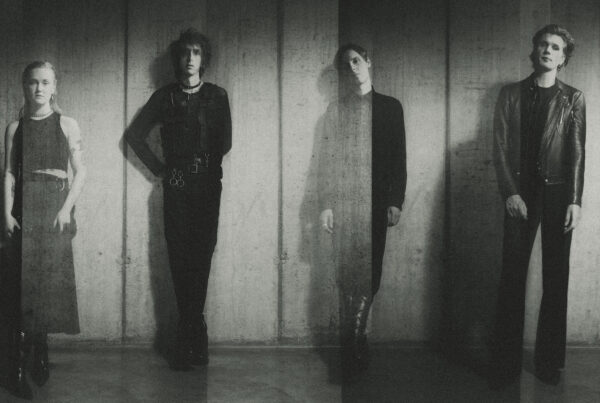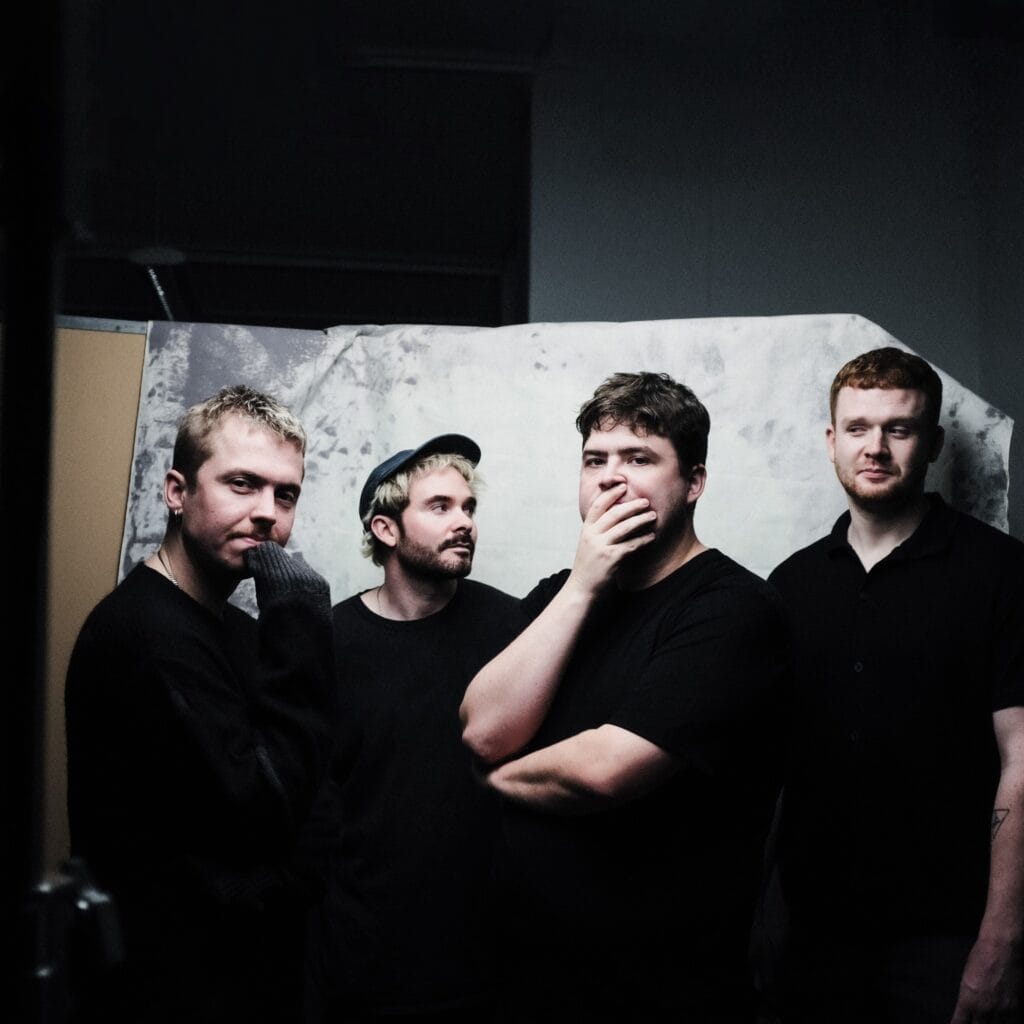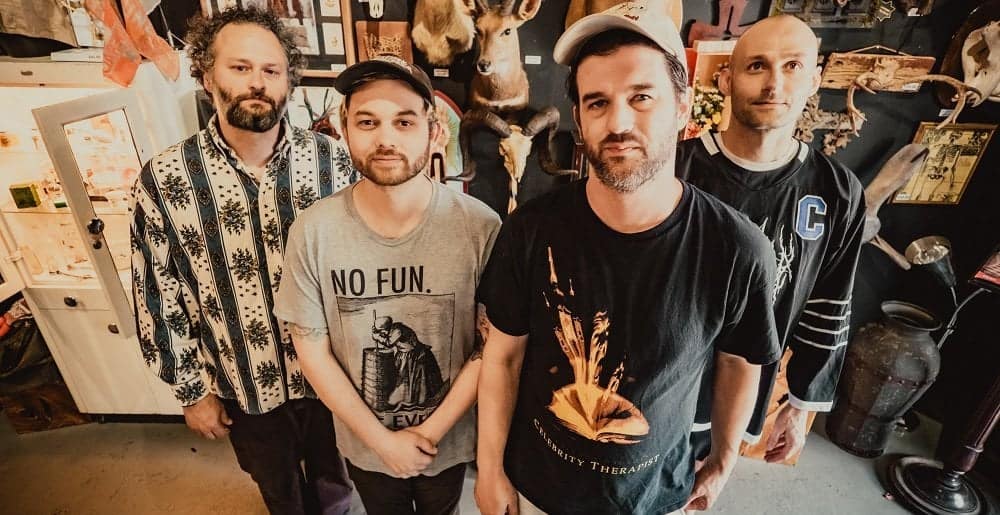Waste of Paint are a collective who, through their members and music, are entirely prismatic: you split the white light, and within it, there is a spectrum of the finer colours and subtler shades your mind can imagine. The seven-strong group has brought about a synergy for every skillset, from producing, performing and writing to playing every instrument.
The output for Waste of Paint is significantly less than they’d like it to be, with only a smattering of singles released. Adam Brodie, one of the central members of the group, explained this in part because of how busy they can become, trying to strike a balance between their everyday lives and their passion for what they do. Brodie also blames it on their scrupulous approach when it comes to the studio: “Everything is pored over: every little snare hit, or just how a bass comes in and out. It means we take so much time, to the point where Waste of Paint becomes more like an art project. We put a lot of effort into the sound, rather than pressing record and getting it done.”
The line where music ends and art begins has always been blurred – and in this case – overlap. Brodie describes their creative process, almost subconsciously, in metaphors: “Typically,” he says, “I’ll come up with the basic bones of the song, like a general idea, kind of like a line drawn, if you will. Then we take it into the studio, and that’s were we’ll start adding all the different colours.”
Waste of Paint structure their song-writing in layers. “Each song we write is a story. What we tend to do is come up with a general concept and that expand on it – it can be anything. When we write what we try and do – in probably a bit of a ‘wanky’ way, I suppose – is we try to have a literal meaning for a song, and then a second subliminal meaning. Then, if we can, we aim for a deeper, third meaning. That way, no matter what state of mind you’re in, you’ll derive different meanings.”
The best illustrator for this process is their debut single, ‘For Molly’. You’d be forgiven that this was an ode to a woman, their hearts masted to their sleeves. ‘For Molly’ is, in fact, written about a dog. “We’ve tried to create multiple layers in all our songs,” Brodie says, “talking and being secretive at the same time. I’m sure some therapist would say we’re compulsive liars, or we’re having some weird internal power struggle, but we find it cathartic.”
As a band who have set their anchor in Hull, though not without experience of music scenes sprawling across the country, Waste of Paint have a particularly sharp perspective on the perks and limitations of being a Hull band. “Hull’s an amazing place, musically, but being as supportive as it is, it creates its own problems,” Brodie begins. “I think this is the same in any city, but because I’ve worked in other cities with music, what separates Hull from the likes of Leeds, York or Manchester is that they’re quite self-contained, with a lot of external support. In Hull, there is a lot of internal support. Bands and promoters support each other, which is amazing – the audiences are loyal. The problem you have is that it does become very insular. I think, for a lot of artists, it’s a false dawn. You’ll get a lot of bands who are doing really great in Hull, but the minute they go further afield they’re back to playing to 5 or 6 people again; they’re used to playing a packed room in Hull, so they can’t quite get their heads around it. We’re victims of this ourselves. There are countless bands who are playing Leeds & Reading, or doing tours, just starting to break through. For some reason, it breaks away. It’s a shame because there are some phenomenal artists in Hull, but I do think there is a big gap between the grass roots stuff and breaking through to the other side. I just feel if we were in another city, we would get more opportunities. That’s not a criticism of the city, it’s just circumstantial. We’re at the end of the line: not many people come to Hull.”
When asked what the biggest struggles are that the band have faced, Brodie is quick to answer: “Ourselves, I’d say.” He elaborates, “Sometimes there is a lot of self-doubt. Each time you write something, you feel the need to raise the bar. I think that’s the biggest problem we’ve faced: trying to match our own expectations of ourselves. When we don’t match them, we suffer. Sometimes we can go months and months and months without going into the studio – I haven’t been in nine months. We just get ourselves into a state. It’s a case of trying to get in the right zone.”
Brodie is very emphatic about this: “We promised ourselves from day one that we want to be artists, not a production line band. We don’t want to make stuff for the sake of it. If we’re going to make something, it needs to be honest and true.”






